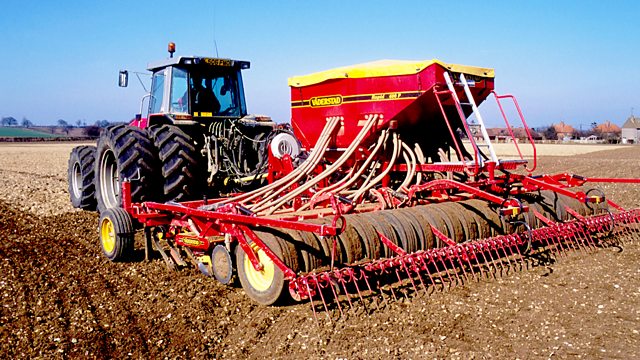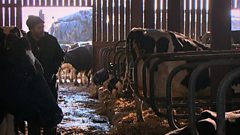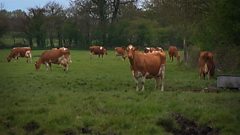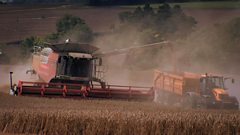
Mud, Sweat and Tractors
Five short films looking at the history of 20th-century farming in Britain, aimed for use in the classroom. Includes the development of agribusiness and organic farming.
Five short films looking at the history of 20th-century farming in Britain, aimed for use in the classroom. The films are:
The development of agri-business - Farming in the UK has changed beyond recognition over John Latham's lifetime. In the 1930s farm production was much lower than it is today and profits were more difficult to achieve. During the Second World War combine harvesters were introduced to increase productivity and reduce the need for imports. Post-war subsidies meant that farming changed through the use of chemicals and machinery - this was the birth of agribusiness. In recent years John has increased profits on his farm by joining forces with other farms in the area to cut costs.
Demands from the market with reference to supermarket chains - The production of milk has changed over the years. In the past, milk was sent to a processing company and then delivered directly to the customer's doorstep. By the late 1990s, large supermarkets were selling over 75 percent of all milk produced and they had a lot of buying power because they were able to buy in bulk. This put pressure on dairy farmers and almost half went out of business. More recently customers have been more concerned about where their food is coming from and how animals are kept, and so supermarkets now have dedicated producer groups. A dairy farmer's survival in business can now often depend on their relationship with large supermarkets.
Competition from the global market - Wheat farming in East Anglia is influenced by local conditions and global markets. Adverse weather conditions mean the harvest can be delayed and the crops may be ruined. Wheat prices fluctuate in response to supply and demand and prices are set according to global markets. Other parts of the world can produce wheat more cheaply than Britain and so farmers must remain competitive. Science, technology and plant breeding have increased output considerably and British wheat production has trebled.
The development of organic farming - Dairy farmers have struggled to make profits over recent years. In the past, farmers could have survived hard times with the profits made on the milk round. The recent dominance of supermarket-bought milk has meant that prices have declined from 25 to 17p per litre. Milk prices are now lower than the cost of production. Nick Gosling has turned to organic farming methods in order to survive. This means working with nature, avoiding the use of chemicals and a focus on animal welfare.
Government policies aimed at reducing the environmental effects of high impact farming - Government agricultural policy has changed dramatically over the years. After the Second World War new policies and government subsidies encouraged farmers to grow more food. New agricultural chemicals were used to increase yields and better technology was introduced. The potentially toxic effects of agricultural chemicals and the impact of large machinery on hedgerows and wildlife were eventually realised. Government policy then moved to allow farmers to be paid to take land out of production and encourage biodiversity.
Last on
Clips
-
![]()
Demands from the market with reference to supermarket chains
Duration: 05:40
-
![]()
The development of organic farming
Duration: 06:07
-
![]()
Competition from the global market
Duration: 04:58
-
![]()
The development of agri-businesses
Duration: 06:14
Featured in...
![]()
Learning Zone, Ages 14-16: History and Religion—Learning Zone
KS4. Engaging short films exploring history and religion for 14-16 year-olds.





